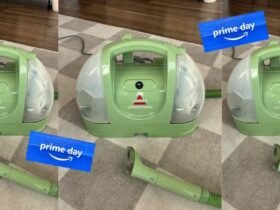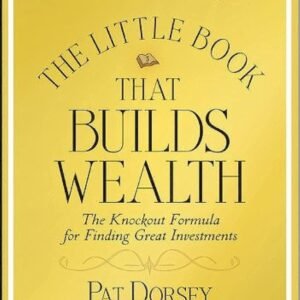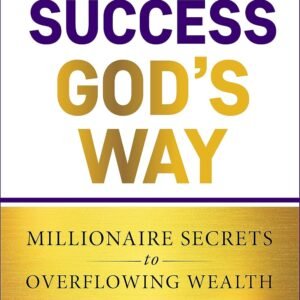Today’s workplace retirement plans are changing fast, offering more features, more flexibility and a whole lot more moving parts.
According to recent surveys, more than half of large 401(k) plans say they plan to offer annuities or “guaranteed lifetime income” options. One in five are preparing to add private investments like private equity or private credit. A few are even exploring ways to include cryptocurrency.
And that’s not all. There’s also a brand-new “super catch-up” for people ages 60 to 63. So, if you’re in that group and you have the income to support it, you’ll be able to contribute up to $34,750 to your 401(k) in a single year. And starting next year, higher earners over age 50 will be required to put their catch-up contributions into Roth accounts instead of traditional ones.
All of that might all sound like a ‘win’ for retirement savers and in some ways, it is. But it also means you’re being asked to make bigger decisions, with higher stakes and not nearly enough guidance. And here’s what too many people don’t realize: your employer is not your financial advisor.
Roth vs. Traditional: A New Wrinkle in the Tax Timing Question
For years, Roth 401(k) options have been available but rarely promoted. Starting in 2026, if you’re 50 or older and earn more than $145,000, your catch-up contributions will be required to go into a Roth 401(k). Translation: You’ll have to pay taxes on that income now, in exchange for tax-free withdrawals later.
This change will force more people to revisit a key tax planning question they may have delayed answering for years. Should I be contributing pre-tax (traditional) or after-tax dollars (Roth)?
Roth contributions can help in retirement by reducing your taxable income, keeping Medicare premiums down, and offering more control over how much tax you pay each year. Plus, Roth 401(k)s are no longer subject to required minimum distributions. So that’s another big win for people who want flexibility.
Still, many people aren’t making the switch. Even though 82% of employers offer Roth 401(k)s, only 17% of employees are using them. Why? Most assume they’ll be in a lower tax bracket when they retire, so they’d rather defer taxes now.
Jim David, CPA and a financial advisor in the Wealthramp network, says this decision deserves more careful thought. “Just make sure you understand how today’s decision will affect your tax picture later,” he says. “It’s not a one-size-fits-all decision, and no one knows exactly what tax rates will look like in the future.”
More Isn’t Always Better in Your Retirement Plan
The push to bring private investments like private equity and private credit into retirement plans has gained momentum. These options are exciting for plan providers and fund managers, but for everyday investors, they can create more questions than answers.
These aren’t the low-cost, liquid mutual funds we’re used to seeing in 401(k)s. They’re often harder to evaluate, more expensive and difficult to get out of.
“There are people and companies promoting products inside retirement plans who have an interest in seeing those products adopted,” said Lisa Gomez, former Assistant Secretary of Labor for Employee Benefits Security. “That doesn’t make them bad, but it does mean the information you’re getting may not be entirely neutral.”
The same caution applies to cryptocurrency. While it’s lost some of its luster following scandals and regulatory scrutiny, it hasn’t gone away. The Department of Labor’s earlier warnings against putting crypto into 401(k)s have been pulled back, leaving it up to each employer to decide whether to allow it.
“Just because something is legal doesn’t mean it’s appropriate for your retirement savings,” Gomez says. “You have to ask yourself: Do I fully understand what this is, how it fits into my long-term goals, and who’s really benefiting from offering it?”
Annuities in Your 401(k)? It’s an Insurance Contract – Read the Fine Print First
One of the fastest-growing additions to retirement plans is the annuity. On paper, it sounds like a great idea. You convert part of your 401(k) balance into a reliable income stream you can’t outlive, just like a pension.
However, annuities can come with numerous strings attached. They can carry high fees, restrictions and pages of fine print and assumptions about future returns that aren’t always easy to untangle.
“People need to be asking who is backing the guarantee, how much they’re paying in fees, and whether this fits with the rest of their income sources in retirement,” advises Jeff George, CFA, CEPA and founder of Tao Financial in Orlando. “Unfortunately, those details are rarely front and center in the marketing materials.”
If it’s not clear how the annuity works, what it costs or whether it fits your overall retirement plan, it’s worth slowing down and getting help before signing up.
Know the Difference Between Education and Advice
More plan features don’t automatically mean better planning. And a lot of the new bells and whistles being added to 401(k)s can look like tools built for you when they’re really built for scale.
Retirement plan providers and vendors might help explain how an option works. But they’re not considering your taxes, your spouse’s benefits, your outside savings or your bigger financial goals. That’s not their job.
If you want a real opinion about whether something fits your plan, that means turning to your own fee-only fiduciary advisor – someone who understands your whole financial picture and doesn’t have a stake in selling you one product over another.
That’s the difference between financial education and real advice you can act on.
So, before you sign up for the newest feature in your plan, take a step back. Read the fine print. Ask the tough questions. Do I understand how this works? Do I know how it fits into my full financial life? Who’s recommending this, and what do they stand to gain?
Because these choices can impact your retirement in ways that won’t show up until years down the road. And by then, all these decisions are a lot harder to undo.
Not sure where to start with finding a financial advisor? Let this free tool play matchmaker and connect you with a financial advisor who fits your vibe and your vision.
MORE ON HERMONEY:



















Leave a Reply